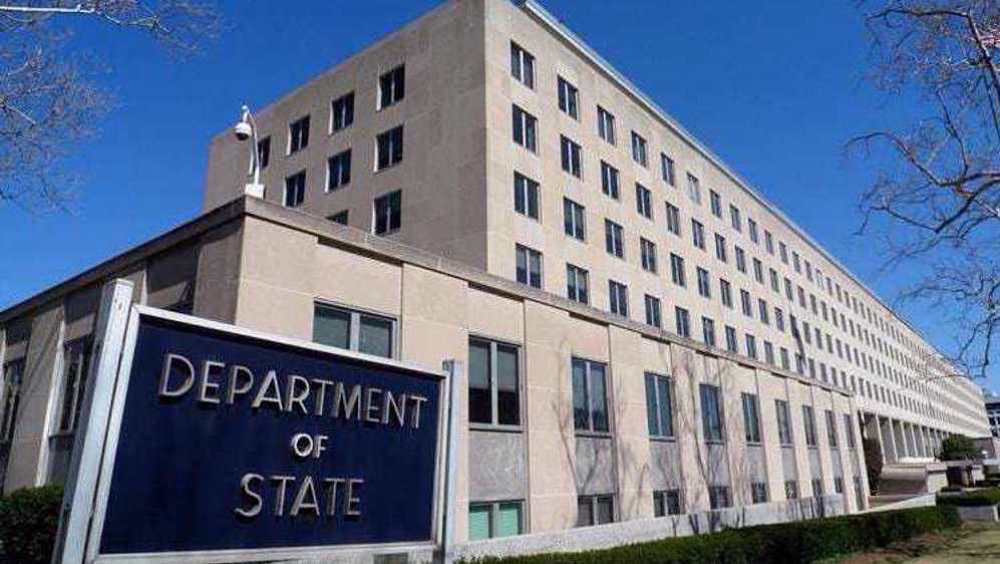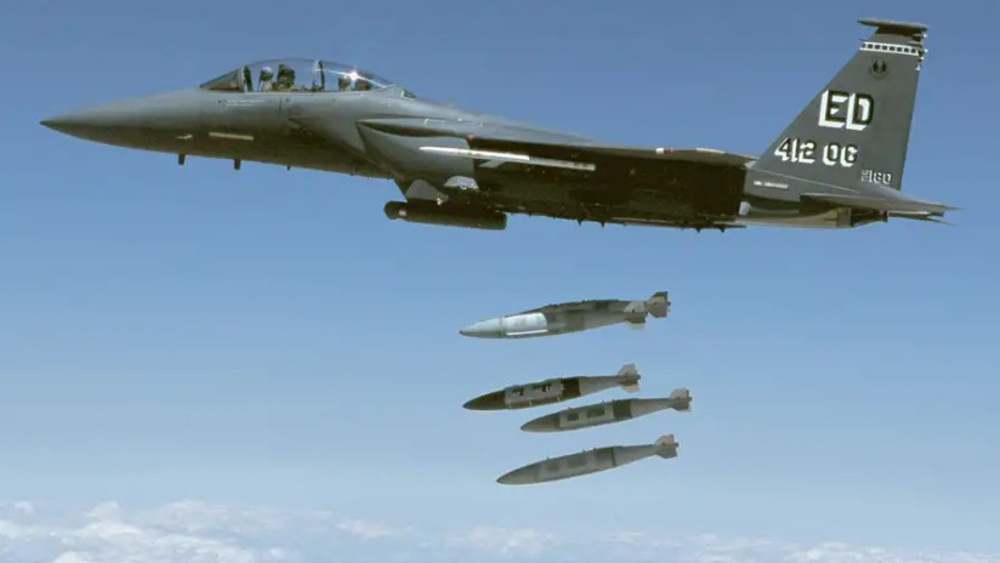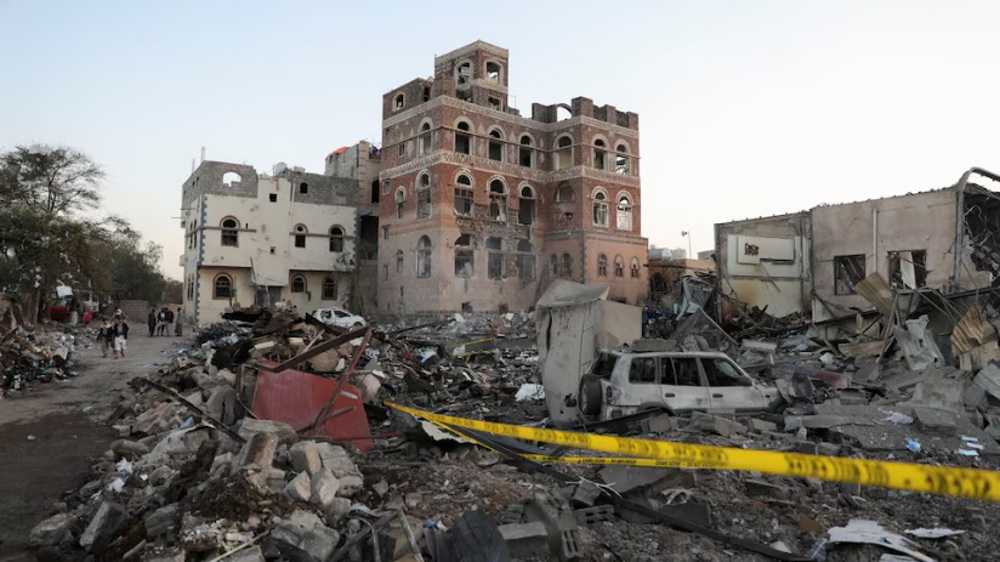US weighs selling bunker-buster bombs to Saudi Arabia: Officials
The United States is considering sophisticated weapons sales to Saudi Arabia, including bunker-buster bombs, that are currently offered only to Israel.
The weapons sales are an effort by the Obama administration to ease the monarchy’s concerns over a potential nuclear deal with Iran, according to The Washington Times.
Talks were underway behind closed doors as Secretary of State John Kerry was visiting the Saudi capital, Riyadh, on Wednesday and Thursday.
Since 2010, the Saudi kingdom has purchased $90 billion worth of US weaponry, including F-15 fighter jets, Patriot missiles, thousands of smaller bombs and armored vehicles.
Analysts familiar with the weapons sales say the 5,000-pound GBU-28 bunker-buster bomb is high on Saudi Arabia’s wish list.

Also, the creation of a missile system stretching from Saudi Arabia to Qatar and the United Arab Emirates would have to involve an agreement from Israel, as a 2008 congressional mandate requires that the US must ensure Israel’s military edge in the Middle East.
“We have to make sure any transfer of weapons to anyone in the region won’t undermine Israel’s ability to defend itself,” an official told the Times.
Military officials told Congress in April that they were expecting requests for American-made missiles, bombs and other weapons from Arab allies, including Saudi Arabia, the UAE, Qatar, Bahrain, Jordan and Egypt.
The New York Times reported earlier that the Obama administration was planning to provide its advanced F-35 stealth fighter to the UAE, three years after it is delivered to Israel.
The White House is weighing such options ahead of a Camp David summit set for May 14 between President Barack Obama and leaders of the [Persian] Gulf Cooperation Council (GCC) states, including Saudi Arabia, Kuwait, the UAE, Oman and Bahrain.
Obama said last month that he wanted to discuss with the Arab allies how to build more effective defense capabilities.
Secretary of Defense Ashton Carter has said US bunker busters are ready to target Iran’s nuclear facilities if necessary.

“We continue to improve it and upgrade over time so that there is this alternative,” Carter told CNN last month. “My job as secretary of Defense is to, among other things, make sure that the so-called military option is on the table.”
The threat came amid efforts by Iran and the P5+1 group of countries--the US, Britain, France, Russia, China and Germany--to reach a final nuclear agreement following a framework deal on April 2.
HRJ/HRJ

US approves potential sale of Stinger missiles to Morocco

US prepares to arm Israel with 1000s more bombs ahead of ‘vigorous expansion’ of Gaza war

US conducts new airstrikes on Yemen’s Ma’rib, al-Jawf provinces
US approves potential sale of Stinger missiles to Morocco
Iran summons Argentine envoy over accusations against top officials
VIDEO | Rally against another Columbia student arrest held in New York
VIDEO | Press TV's news headlines
VIDEO | Tehran-Washington negotiations
VIDEO | Iran leads global push to define terrorism after 25 years of debate
US prepares to arm Israel with 1000s more bombs ahead of ‘vigorous expansion’ of Gaza war
Hamas: Surrender not an option; Netanyahu’s murders aimed at securing political future







 This makes it easy to access the Press TV website
This makes it easy to access the Press TV website